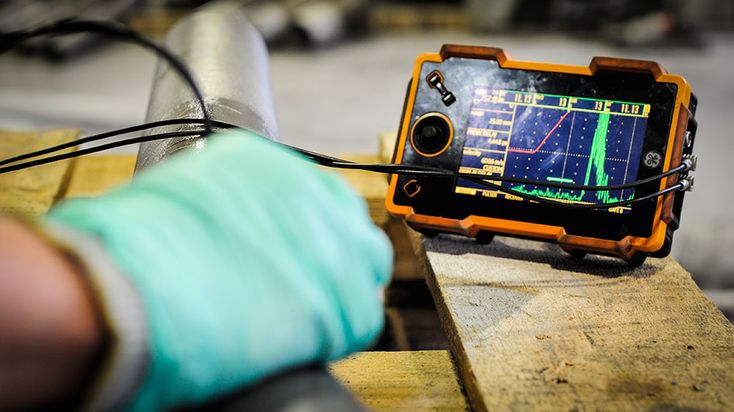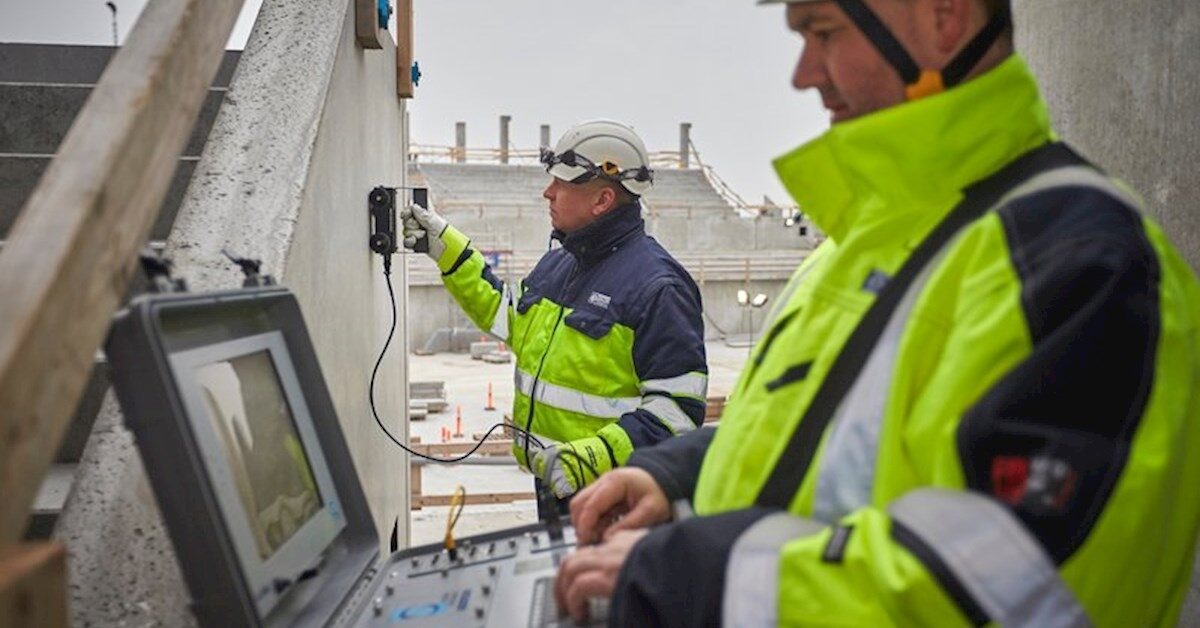The field of inspection technology is rapidly evolving, with adaptive frequency control in inspection playing a pivotal role. Industry QA professionals are constantly seeking ways to enhance precision and efficiency, and this innovative approach to frequency control is proving to be a game-changer. In this article, we will delve into how adaptive frequency control is revolutionizing inspection processes, ensuring high-quality outcomes across various industries.

What is Adaptive Frequency Control?
Adaptive frequency control refers to the ability of inspection systems to adjust their operational frequency dynamically. This technology allows devices to optimize their performance based on real-time data, making it possible to conduct thorough inspections with improved accuracy and speed. By tailoring the frequency to the specific requirements of the task, adaptive frequency control ensures that inspections are both thorough and efficient.
Importance in Modern Inspection
In the realm of quality assurance, adaptive frequency control in inspection is crucial. It offers the ability to fine-tune inspection processes, minimizing errors and enhancing the detection of defects. This technological advancement is particularly valuable in industries where precision is paramount, such as aerospace, automotive, and electronics.
Enhancing Precision and Accuracy
One of the primary benefits of adaptive frequency control is its ability to enhance precision and accuracy. By adjusting the frequency to suit the specific characteristics of the material or component being inspected, this technology reduces the likelihood of false positives and missed defects. This capability is especially important in sectors where even the smallest flaw can lead to significant safety risks or financial losses.
Boosting Efficiency
Efficiency is another key advantage of adaptive frequency control. By optimizing the frequency for each inspection task, this technology reduces the time required to complete inspections without compromising on quality. This efficiency boost not only saves time but also reduces operational costs, making it an attractive option for businesses looking to improve their bottom line.
Applications Across Industries
The impact of adaptive frequency control is felt across a wide range of industries. In the aerospace sector, for instance, it plays a critical role in ensuring the structural integrity of aircraft components. By enabling precise inspections, it helps prevent catastrophic failures and ensures passenger safety. Similarly, in the automotive industry, adaptive frequency control is used to inspect engine parts, tires, and other critical components, ensuring they meet stringent safety standards.
Electronics and Semiconductor Manufacturing
In the electronics and semiconductor industries, where components are often microscopic in size, adaptive frequency control is invaluable. It allows for the detection of minute defects that could otherwise compromise the performance of electronic devices. By ensuring the quality of semiconductors, this technology supports the production of reliable and high-performance electronic products.
Construction and Infrastructure
Adaptive frequency control is also making waves in the construction and infrastructure sectors. By providing precise inspections of structural elements, it helps identify potential weaknesses or defects that could pose safety risks. This capability is essential for maintaining the integrity of buildings, bridges, and other critical infrastructure.
Future Prospects and Developments
As technology continues to advance, the future of adaptive frequency control in inspection looks promising. Ongoing developments are expected to further enhance its capabilities, making it an even more powerful tool for quality assurance professionals. With the integration of artificial intelligence and machine learning, adaptive frequency control systems will become increasingly sophisticated, offering unprecedented levels of precision and efficiency.
Integration with Machine Learning
The integration of machine learning with adaptive frequency control is a particularly exciting development. By leveraging the power of AI, these systems can learn from past inspections, continuously improving their performance over time. This learning capability will enable even more accurate inspections, further reducing the risk of defects and enhancing quality assurance.
Expanding Applications
As adaptive frequency control technology matures, its applications are expected to expand beyond traditional industries. Emerging fields such as renewable energy and biotechnology could benefit from this technology, ensuring the quality and safety of new products and processes.
Challenges and Considerations
Despite its many advantages, implementing adaptive frequency control in inspection is not without challenges. Cost is a significant consideration, as the technology can be expensive to implement. Additionally, the complexity of these systems requires specialized knowledge and expertise, necessitating investment in training and development for QA professionals.
Balancing Cost and Benefits
For businesses considering the adoption of adaptive frequency control, balancing the cost with the potential benefits is crucial. While the initial investment can be substantial, the long-term savings in terms of efficiency and quality improvements often justify the expenditure.
Training and Expertise
To fully leverage the benefits of adaptive frequency control, organizations must invest in training their workforce. Providing QA professionals with the necessary skills and knowledge to operate and maintain these systems is essential for maximizing their effectiveness.
Conclusion
In conclusion, adaptive frequency control in inspection is a transformative technology that holds significant promise for quality assurance across various industries. Its ability to enhance precision, boost efficiency, and improve defect detection makes it an invaluable tool for QA professionals. As technology continues to evolve, the future of adaptive frequency control looks bright, with the potential to revolutionize inspection processes and ensure the highest standards of quality and safety.

FAQs
What is adaptive frequency control?
Adaptive frequency control is a technology that allows inspection systems to adjust their operational frequency dynamically based on real-time data, optimizing performance and improving inspection accuracy.
Why is adaptive frequency control important in inspection?
Adaptive frequency control is important in inspection because it enhances precision, boosts efficiency, and improves defect detection, ensuring high-quality outcomes and reducing the risk of errors.
How does adaptive frequency control benefit different industries?
Adaptive frequency control benefits various industries by enabling precise inspections, reducing operational costs, and improving the quality and safety of products and infrastructure. It is particularly valuable in sectors such as aerospace, automotive, electronics, and construction.
For more information on inspection technology and its applications, you can visit this external link.
To learn more about related topics such as synchronization in inspection and machine learning in frequency optimization, visit Strobox.ai.
This article contains affiliate links. We may earn a commission at no extra cost to you.
